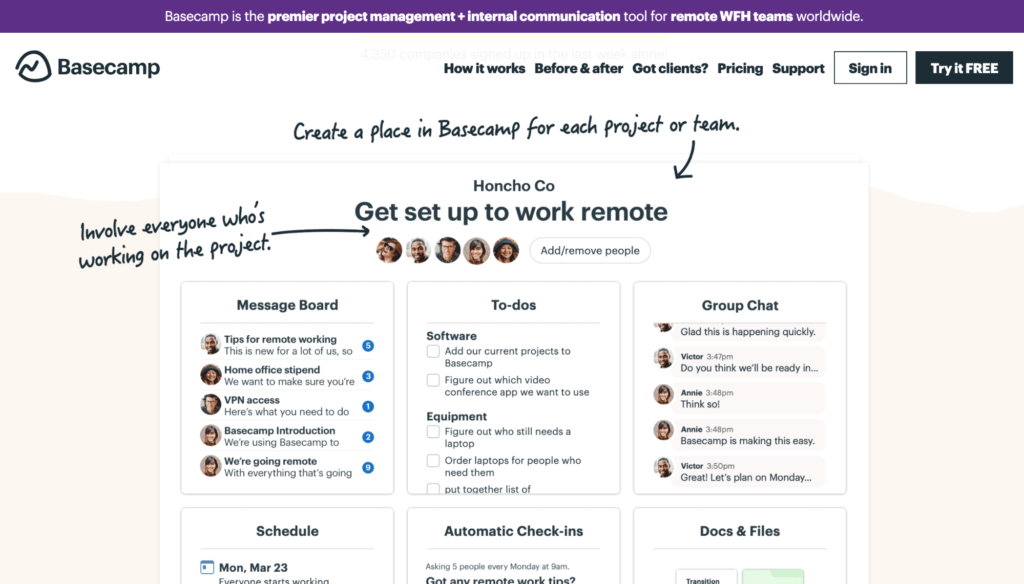From Data to Success: Analyzing Case Studies of Small Startups That Embraced Remote Work Before 2020
Meta Description: Explore how small startups that adopted remote work before 2020 achieved success through innovative practices. Learn from compelling case studies, data insights, and actionable strategies.
In recent years, especially with the accelerated changes brought by the COVID-19 pandemic, remote work has evolved from a niche concept to a mainstream practice. However, some small startups were ahead of this curve, embracing flexibility, autonomy, and innovative work models long before 2020. This blog aims to explore the journeys of these forward-thinking companies, analyzing the strategies that propelled their success and offering valuable insights for entrepreneurs, team leaders, and remote work advocates.
My name is Vitalli Petrov, a digital marketing consultant with over 5 years of experience in SEO and content strategy. My work has helped more than 20 startups optimize their digital presence and embrace innovative business practices.
The Pre-2020 Remote Work Landscape
Before the pandemic redefined workplace norms, a significant shift towards remote work was already underway. According to research by Gallup, 43% of American workers reported working remotely at least part of the time in 2016, highlighting a growing acceptance of flexible working arrangements. This blog post will delve into the experiences of small startups that recognized and harnessed this trend as a foundation for their operations.
Key Case Studies
1. Basecamp
Embracing Flexibility Since 2004
Basecamp, the renowned project management tool, adopted remote work early on, emphasizing a hybrid model that values work-life balance. Their approach to productivity is centered around results rather than hours worked, fostering an environment of trust and responsibility. The founders advocate for limited meetings and synchronous work processes, allowing team members the autonomy to manage their time effectively. This philosophy has contributed significantly to their sustained success.

2. Automattic
Remote-First Culture from Day One
Founded in 2005, Automattic, the company behind WordPress, has been operating with a distributed workforce since its inception. Automattic prioritizes flexibility and autonomy, enabling its global employees to work from anywhere, an approach that has spurred innovation within the organization. Their commitment to a remote-first culture has allowed them to consistently attract top-tier talent worldwide, emphasizing that great work can happen regardless of location.

3. Zapier
Growing Through Remote-First Principles
Zapier, an automation platform that thrives on making workflows seamless, has grown dramatically while maintaining a fully remote model. Their hiring practices are uniquely designed to attract diverse talent, and onboarding is crafted to ensure new employees understand the company's remote culture. Zapier's success highlights how effective communication and a focus on outcome-based productivity can contribute to significant growth.
The Data Behind Remote Work
Remote Work Adoption Rates
Even before 2020, remote work was gaining traction. Statistics from sources like Stanford reveal that remote work adoption rates saw a remarkable increase, with 24% of U.S. workers engaging in remote work by 2019. The proactive nature of small startups played a key role in this shift, showing that adaptability could lead to meaningful changes in workplace culture.
Productivity Metrics
Data indicates that remote employees are often more productive than their in-person counterparts. A report by Harvard Business Review found remote workers to be 13% more productive. This productivity boost is often attributed to fewer distractions, reduced commuting time, and increased job satisfaction—a crucial factor for maintaining high performance within teams.
Benefits of Remote Work
Cost Savings
Startups embracing remote work enjoyed substantial cost savings. A report from Global Workplace Analytics suggests companies can save an average of $11,000 per employee annually by allowing remote work. For small businesses, these funds can be reinvested into growth initiatives, benefiting the organization long-term.
Talent Acquisition and Retention
Remote work expands the talent pool, allowing startups to recruit individuals from diverse geographic locations. Companies like GitHub have capitalized on this advantage, illustrating that successful remote work cultures can attract top talent that may not be available in local markets.
Overcoming Challenges
Common Challenges
While many startups successfully transitioned to remote work, they faced specific challenges. Buffer's survey identified that 20% of remote workers struggle with collaboration and communication. Acknowledging these hurdles is vital to understanding the full picture of remote work dynamics.
Innovative Solutions
Innovative methodologies helped address these challenges. Regular check-ins through video conferencing tools like Zoom became commonplace, fostering open communication among team members. Virtual coffee breaks and online team-building exercises facilitated stronger connections and team cohesion, ensuring employees felt engaged even from a distance.
Insights from Leaders
Including insightful quotes from leaders of these startups can add depth to this analysis. Consider a statement from Automattic's CEO, Matt Mullenweg: "We hire people who are self-motivated, and our culture thrives on trust and accountability." Such testimonials underline the critical elements that make remote work successful.
Future Predictions
Experts predict that remote work will remain a staple in the near future. Analysts foresee that companies adopting hybrid models will likely continue seeing benefits in employee satisfaction and performance. By analyzing data pre-2020 and ongoing trends, we can understand how companies prepared for a shift that would become a global necessity.
Actionable Takeaways
For startups considering a shift towards remote work, here are some practical recommendations:
- Adopt Flexible Policies: Develop a policy that allows employees to choose where and how they work best.
- Utilize Collaboration Tools: Take advantage of platforms like Slack or Asana to streamline communication and project management.
- Measure Productivity: Implement key performance indicators (KPIs) to assess the effectiveness of remote work arrangements.
- Encourage Social Interactions: Create opportunities for virtual gatherings to foster team relationships and collaboration.
Conclusion
The journeys of small startups that embraced remote work before 2020 serve as powerful examples of innovation, adaptability, and foresight. By understanding their experiences, we can gain valuable insights that inform our future strategies. As we move forward, embracing remote work not only represents a business model but a pathway to cultivating a more flexible and resilient workforce.
If you're curious to explore more about the evolving landscape of remote work and its impact on entrepreneurship, consider subscribing to our newsletter for more insights or diving deeper into related resources. Your business success can start by learning from the pioneers of remote work!

